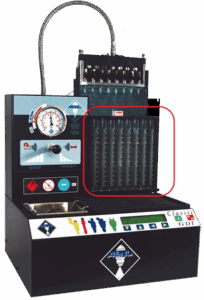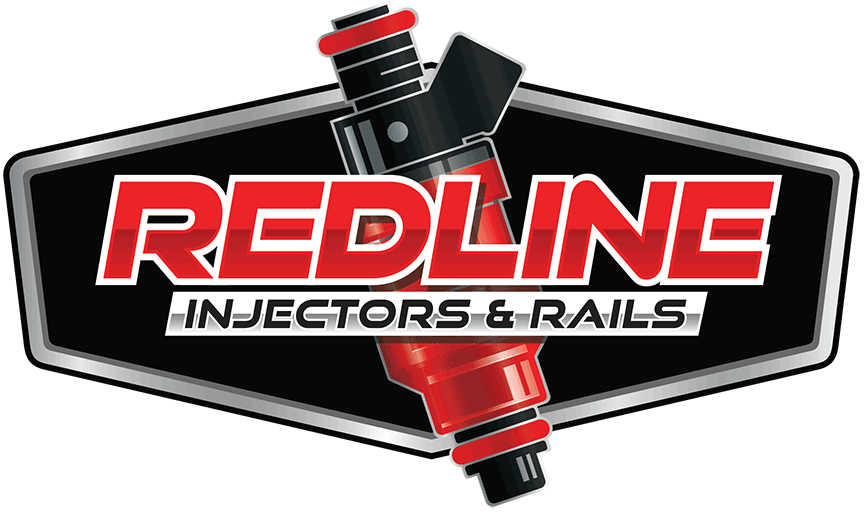Lets get this out of the way up front: No.
- Today there are GDI/Piezo specific machines, but they are very expensive and thus creates a barrier to entry. GDI/Piezo Injectors are more akin to diesel injectors than port injectors. In fact, the current generation of GDI/Piezo machines uses the same chassis and interface as the Diesel injector machines do. The cost in setting up an actual GDI/Piezo machine is gasp worthy.
- The incentive then is to mis-represent the capability of the legacy port Injection machines in an attempt to avoid losing business.
- While you can technically connect a GDI/Piezo injector to a port injector machine, the results will be irrelevant. Port injector machines spray up to 90 psi, whereas GDI/Piezo injectors atomize effectively at 1000-3000 psi and output measurements are completely different rendering any port injector results completely meaningless for GDI/Piezo injectors.
- Actual GDI/Piezo specific machines come with computer controlled manufacturer-specific test plans that are constantly being updated and added to via WIFI connectivity. These test plans can be accessed on a digital front panel using the Injectors Model number to pull up the specific manufacturer injector test suite. Test plans contain multiple tests, each with specific flow corridors and pressures from 500 to 3000 PSI typically where injectors need to perform within the specified parameters for each unique test. “Spray Pattern” and cc/min are not valid functional GDI/Piezo tests.
- Q: How do I know if a shop is using the right machine for GDI/Piezo injectors?
- A: If a shop is using a machine for GDI/Piezo injectors with “graduated cylinders” or beakers as shown below circled in red… it’s the wrong machine.

Can GDI injectors be tested on a port injector bench?
No. GDI (Gasoline Direct Injection) injectors cannot be accurately or safely tested on a port injector test bench. Port benches are designed for low-pressure injectors and do not replicate real GDI operating conditions.
Why can’t a port injector bench test GDI injectors?
Port injector benches lack:
-
High-pressure capability (GDI operates at 500–3,000+ psi vs. 40–80 psi for port injectors)
-
Proper injector drivers, especially for piezoelectric GDI injectors
-
Accurate leak-down, flow, and spray pattern evaluation at real-world pressures
As a result, test data is unreliable.
Will a port bench show if a GDI injector is bad?
Not reliably. A GDI injector may appear to test “good” on a port bench while still:
-
Leaking internally at high pressure
-
Flowing incorrectly under real operating conditions
-
Causing misfires, lean conditions, or hard-start issues in the engine
Can testing Gasoline Direct Injectors on a port bench cause damage?
Yes. Improper electrical drivers and incorrect operating conditions can:
-
Stress internal components
-
Accelerate wear
-
Shorten injector lifespan
In some cases, injectors are returned in worse condition than when tested.
What tests can be done on a port bench for GDI injectors?
Only very limited checks, such as:
-
Basic electrical resistance
-
Simple actuation or “click” confirmation
These checks do not evaluate injector performance or reliability.
What equipment is required to properly test GDI injectors?
Proper GDI testing requires:
-
A dedicated high-pressure GDI test bench
-
OEM-style injector drivers
-
Ability to measure flow, leak-down, mm³/stroke and nozzle response time at operating pressures
What happens if GDI injectors are not properly tested?
Improper testing can lead to:
-
Repeated engine issues
-
Incorrect diagnostics
-
Unnecessary injector replacement
-
Customer comebacks and wasted labor
What’s the bottom line?
If accurate diagnostics matter, GDI injectors must be tested on dedicated high-pressure GDI equipment. Port injector benches are not a valid testing solution. Testing a GDI injector on a port bench can give false “good” results or even damage the injector. While a port bench can perform basic electrical resistance checks or limited actuation confirmation, proper Direct injector testing requires a dedicated high-pressure test bench with OEM-style drivers, capable of accurately measuring flow, leak-down, spray pattern, and response time under real operating pressures.
See our Video where we test a GDI injector on both machines.
